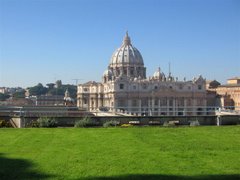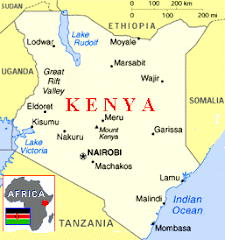In an encyclical released this week, an intellectually adventurous Pope asserts that love is ultimately the solution to the world economic crisis.
 Today, by "economy" or "economical", what first comes to mind is low-cost, parsimonious, sparing, small, fuel-efficient, and, often, cheap. But now, with his third encyclical, Caritas in Veritate ("Charity in Truth") Benedict subverts and reverses the common understanding of "economy" as a parsimonious reduction in costs or a miserly (re)distribution of resources.
Today, by "economy" or "economical", what first comes to mind is low-cost, parsimonious, sparing, small, fuel-efficient, and, often, cheap. But now, with his third encyclical, Caritas in Veritate ("Charity in Truth") Benedict subverts and reverses the common understanding of "economy" as a parsimonious reduction in costs or a miserly (re)distribution of resources.
For this counter-cultural Pope, "economy" is principally a question of charity, of love. In his first encyclical, Deus Caritas Est ("God is Love"), the Pope argued that love is inherently expansive, ecstatic, and effusive. For Benedict, the social doctrine of the Church, that includes a now rapidly developing theology of political economy, is not just about the distribution of wealth. Benedict is at least as interested in fostering wealth creation motivated by love, while exercising responsible stewardship over the environment.
The Catholic Church claims that God challenges all human beings to collaborate with the Creator by, not just conserving his creation, but improving and expanding upon all of creation. Therefore, we enjoy the right and duty to continue God's creative work. A good Christian, in particular, must strive to create wealth and to foster development, especially seeking to promote the integral development of the poorest. The first book of the Bible says that Adam and Eve were created to be fruitful and to multiply, to extend and to propagate the gifts received from God. Man and woman were created in God's image, and so, they are to continue his work. Demographic growth and human fruitfulness, giving birth to offspring and extending human life through the generations, are components of the broader fruitfulness of expanding upon the vast wealth of the marvelous array of nature found on our planet, and beyond.
With his penetrating analysis of economic affairs, within the framework of human freedom and his recommendation that our activity be done out of love, often for free, and always in accord with the truth, Benedict surpasses the stale commonplaces of much current political debate between left and right, progressives and conservatives, communism and capitalism. Like the Gospels themselves, Benedict's message is revolutionary. He applauds neither of the two sides of the debate, typically contested by partisan politics. Within the Church, Benedict challenges both social justice and pro-life activists to seek even more ambitious and more well-rounded goals. In sum, the Pope challenges the world to overcome the current economic crisis by transforming all human transactions in accord with love in truth.
In the 144 pages of Caritas in Veritate, the Pope addresses a wide-range of topics. For instance, he proposes more robust supranational governance for the world economy:(more…)
An article by: Rev. Robert A. Gahl, Jr., is Associate Professor of Ethics at the Pontifical University of the Holy Cross, in Rome.




No comments:
Post a Comment